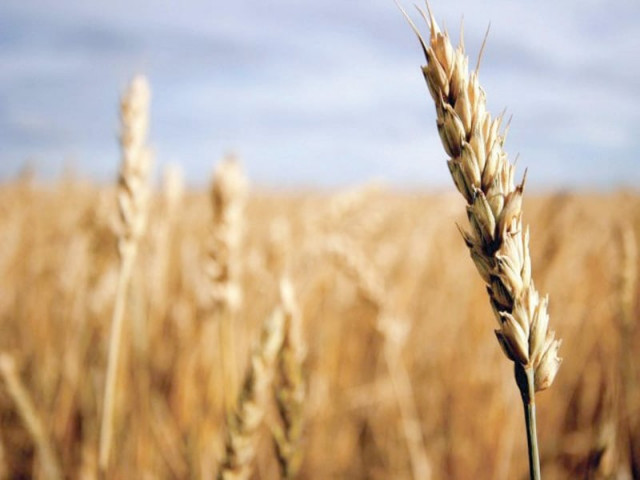Govt takes steady start for import of wheat
Faces challenge of high global prices, coupled with sliding value of rupee

The government has taken a steady start on implementation of its decision to import four million metric tons wheat in this fiscal year, as it faces challenges of uncertain but high global prices coupled with a slide in value of rupee.
The landed cost of imported wheat remains higher than the minimum support price of Rs1,850 per 40kg.
Against the first tender for importing 500,000 metric tons of wheat by Trading Corporation of Pakistan (TCP), the national trading agency received responsive bids for 220,000 metric tons of imports in August and September, according to the government officials.
The price it received was $244 per metric ton, excluding the freight cost. After adding the freight charges, the landing cost at Karachi port will be $304 per metric ton.
The TCP has issued another tender for import of 400,000 metric tons wheat that will be opened on August 23, according to the TCP’s website.
The Black Sea wheat price on Tuesday was $304 per metric ton, excluding the freight charges. The future contract for black sea wheat on Tuesday were quoted at $314 - nearly 30% higher than a month ago.
The government official said that along with uncertain international market prices, it faced another challenge in the shape of falling value of the rupee. The currency has depreciated by more than Rs10 in just two months and traded over Rs164.10 to a dollar on Tuesday.
In June this year, the cabinet had allowed to import four million metric tons of wheat meet shortfall against the local consumption requirements. This includes two million imports by TCP through open tender, one million tons under a government-to-government deal and one million tons by the private sector.
The officials said that there were expectations that the prices will stabilise by July-August of this year, which has not happened. Russia also imposed taxes on wheat exports, which constrained global supplies.
The government has now decided to import wheat in small quantities to avoid price pressures, as it sees another window in October-November period.
However, the high global prices coupled with devaluation of rupee would strain the federal and provincial governments’ budgets due to increasing requirement for subsidies.
In the last fiscal year, Pakistan had also imported more than three million metric tons of wheat, including by the private sector.
Although the government claims that the country produced bumper crop of 27.3 million metric tons, it still felt the need to import four million metric tons of wheat.
The government also faced another issue of lack of pre-shipment inspection agencies that could check the quality of the imported wheat before its loaded on the ships.
All these consignments have to be inspected before these are shipped for imports by Pakistan.
There were only two pre-shipment inspection agencies that are listed under the Import Policy Order and were providing the services, according to the Ministry of Commerce.
On the request of the commerce ministry, the federal cabinet recently approved to include seven more agencies in the pre-shipment agencies list. The foreign partners of these firms are Baltic Control Limited, Aarhus, Denmark, Control Union, Netherlands, Bureau Veritas, France, Geo Chem Middle East, UAE, Cotecna, Switzerland, Mis Cotecnca Inspections, Switzerland, Geo Chem Far East, Singapore and Intertek Testing, UK.
The wheat and wheat flour prices have been increasing in double-digits and all the government efforts to check these prices are restricted to lip service. Finance Minister Shaukat Tarin on Monday again directed the concerned ministries to accelerate the import of wheat and sugar and ensure that sufficient stocks were available for smooth supply during the current financial year. He also urged the concerned ministries and TCP to exercise due diligence and take appropriate measures for risk hedging while floating tenders in international market, according to a press statement issued on Monday.
The officials said that there were sufficient stocks of wheat available in the country, which is also evident that so far no provincial government has started releasing the wheat from their stocks.
As of August 13, the wheat stocks with federal and four provincial governments stood at 6.12 million metric tons, which were higher than the previous year’s stock on the same day. Punjab has the maximum stock of 4.47 million metric tons, followed by 1.2 million tons by Sindh and 500,000 by PASSCO.
Published in The Express Tribune, August 18th, 2021.
Like Business on Facebook, follow @TribuneBiz on Twitter to stay informed and join in the conversation.



















COMMENTS
Comments are moderated and generally will be posted if they are on-topic and not abusive.
For more information, please see our Comments FAQ